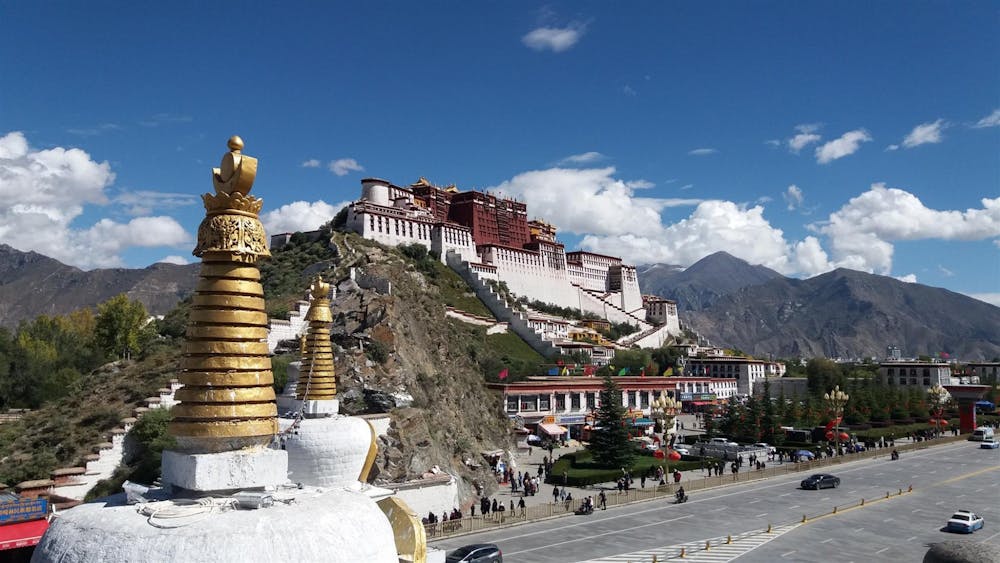The University is preparing to be the first ever American university to host the Young Tibetologists Seminar, an event that gathers young Tibetan study scholars from all over the world to exchange and share knowledge on Tibetan culture. The public is welcome to attend the seminar, which will take place in August 2022, with detailed plans scheduled to release around February.
The International Young Tibetologists seminar is held by the International Association for Tibetan Studies and has been connecting young people since the seminar was first held in 2007. Traditionally, the seminar is held every three years to gather Tibetan study scholars from different parts of the world and has previously taken place in London, Paris, Japan and St. Petersburg. The University was announced to be the host of next year’s seminar on Oct. 11.
While there is no physical building on Grounds dedicated to Tibetan studies, the University does have a digital U.Va. Tibet Center and a digital Tibetan and Himalayan Library for students who are interested in Tibetan culture. According to David Germano, director of the U.Va. Tibet Center, IATS has been supportive in adding young blood into its traditional seminar series this year by holding a Young Tibetologists seminar at the University as a sister project.
During the seminar, young scholars will exchange their knowledge in presentations, roundtables and workshops. Participants will focus on different components of Tibetan studies such as social science and the humanities — including societal, religious, environmental and political aspects of the field — and will also talk about contemporary implications. Attendees will also discuss Tibet’s cultural ethnicity that has been influenced by mainstream Chinese culture, its civilization, literary studies and film studies.
“Different aspects of Tibetan studies are interconnected, [and] this connection is essential to understanding Tibet as a whole,” Germano said.
According to Eben Yonnetti, student seminar organizer and religious studies PhD candidate, students who are interested in Tibetan studies are also welcome to audit the seminar.
Typically there are two keynote speakers at the seminar who are usually scholars sharing their research. Scholars are divided into panels based on their areas of expertise. Before the pandemic, the seminar also provided an opportunity for scholars to reconnect with international peers.
“I sometimes joke with my friend in Tibetan Studies about how this seminar serves as our ‘regular reunion,’” Jue Liang, Tibetan Studies scholar and one of the Young Tibetologists seminar organizers, said.
Geographically, ethnic Tibetans are spread across five provinces in China, including Yunnan, Qinghai, Chengdu, Gansu and Tibet. However, as part of Chinese cultural diversity, Tibet uses a different language from Mandarin and also has its unique feature of religion integrated into social life.
“Though it might be different from people’s assumption, ‘Tibet’ under the Tibetan studies is more of a cultural concept,” Yonnetti said.
Due to travel restrictions during the pandemic, some of the focus of Tibetan studies has also shifted. Yonnetti said he was able to study more contemporary issues such as new rituals that emerged from the pandemic and even attend virtual rituals. However, he is eager to be able to hold the summer seminar in person.
“It is a bit weird if we have to do it virtually, because when held in Oxford and Czech Republic, we could literally see people downstreet and have a strong connection with other scholars as a person,” Yonnetti said. “But Zoom meetings do not allow me to do that. Hence, for our summer seminar, we have lunch break, coffee break and weekend activities that allow our international scholars to develop such connections for the same reason.”
According to Yonnetti, organizers are intentionally updating information slowly due to uncertainties surrounding the pandemic but are looking to release clearer plans for the seminar in February.
Germano also expressed excitement towards the Young Tibetologists seminar to be held in Charlottesville next summer.
“I believe it is a great opportunity for young Tibetan studies scholars across the world to gather together and discuss topics they are interested in,” Germano said.
The Young Tibetologists seminar will be open to the public and details can be found on its website.







